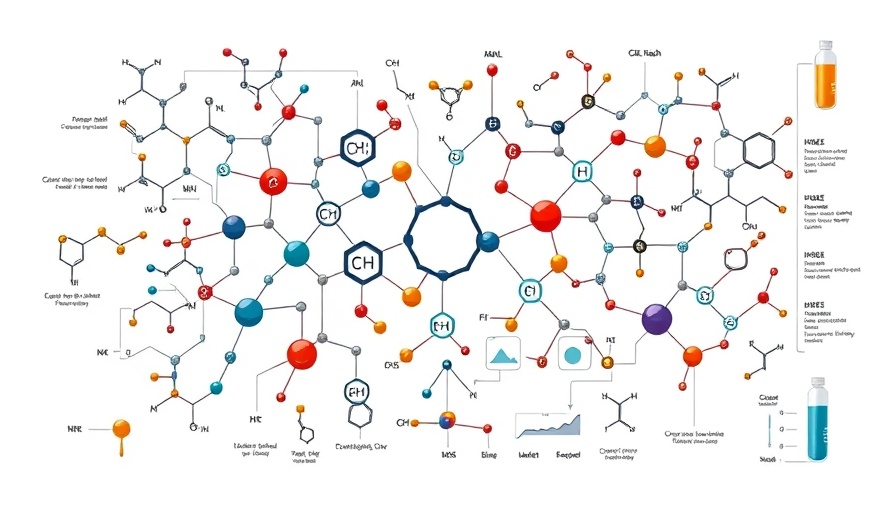
Understanding Molecular Glues: A New Hope for Autoimmune Conditions
Researchers are exploring innovative approaches to combat the complexities of autoimmune diseases, and among these, a fascinating advancement known as "molecular glues" has emerged. These novel compounds offer an exciting therapeutic option by targeting and taming the errant protein interactions that often lead to debilitating conditions like lupus. Understanding how these molecular glues work can pave the way for a breakthrough in managing autoimmune disorders.
What Are Molecular Glues?
Molecular glues function differently from traditional drugs, offering a fresh perspective on biological therapies. Instead of merely inhibiting harmful protein interactions, they facilitate the formation of protein complexes that can help restore balance within the body's systems. This unique mechanism allows them to target the dysregulated BRISC complex, which plays a significant role in inflammatory signaling processes.
Why Target Deubiquitylases?
At the heart of this research lies the concept of deubiquitylases (DUBs)—enzymes that manage protein stability and signal transmission. Under normal conditions, a DUB removes ubiquitin marks from proteins, preventing their degradation. However, when the DUB activity goes awry, it can lead to excessive inflammatory responses, contributing to conditions like lupus. By employing molecular glues to target these DUBs, researchers aim to mitigate this dysregulation.
How Does This Research Change the Game?
The breakthrough research led by Dr. Joseph Salvino and his team marks a significant shift in the approach to drug development for autoimmune diseases. Traditional small-molecule therapies often come with issues of specificity and side effects. In contrast, molecular glues offer a targeted strategy that promotes beneficial protein interactions, potentially leading to fewer adverse effects for patients.
A Brighter Future for Patients
This advancement opens up new avenues for treating autoimmune conditions. As researchers delve deeper into molecular glues and their effects on specific inflammatory pathways, the potential for developing effective therapies increases. For individuals battling autoimmune diseases, these innovations represent a hopeful step toward better management and improved quality of life.
Encouragement for Future Research
As the exploration of molecular glues continues, it’s essential for stakeholders in the biotech and medical fields to recognize the promise these compounds hold. Investment in research and development of such therapies could hasten the arrival of new treatments for those suffering from autoimmune disorders.
In conclusion, molecular glues are shaping a new frontier in therapeutic interventions. Understanding and supporting the ongoing research in this field can help usher in a new era of healthcare solutions that prioritize patient well-being, making it a topic worthy of attention and advocacy.
 Add Row
Add Row  Add
Add 




Write A Comment